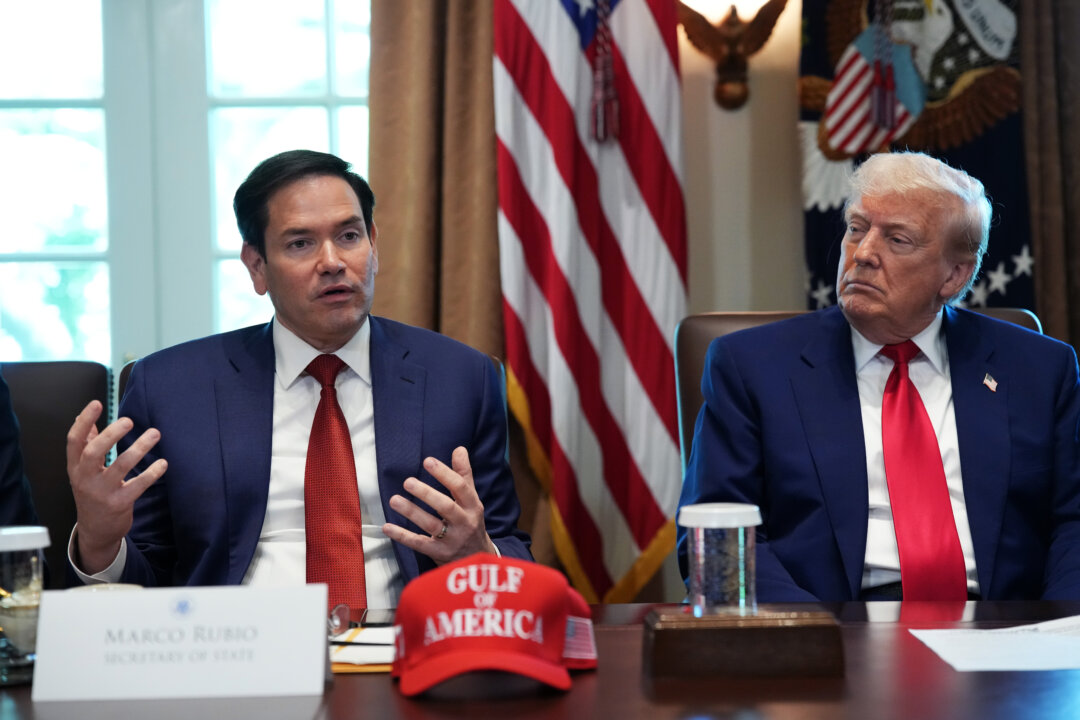‘There’s at least one person at this table today who had a dossier,’ Rubio said at an April 30 Cabinet meeting.
“We had an office in the Department of State whose job it was to censor Americans,” said Rubio during an April 30 Cabinet meeting at the White House, referring to the Global Engagement Center, which was rebranded as Counter Foreign Information Manipulation and Interference.
“There’s at least one person at this table today who had a dossier in that building of social media posts to identify them as purveyors of disinformation,” he said. “We have these dossiers. We are going to be turning those over to these individuals.”
Rubio did not name the person or persons to whom he was referring.
Vice President JD Vance jokingly asked if it was himself or Elon Musk, who leads the administration’s Department of Government Efficiency and owns social media platform X, formerly Twitter, which critics have accused of spreading disinformation.
Rubio said that “the best way to combat disinformation is freedom of speech and transparency. We’re not going to have an office that does that.”
The Secretary of State closed down the office last month, saying in an April 16 statement that it “cost taxpayers more than $50 million per year, spent millions of dollars to actively silence and censor the voices of Americans they were supposed to be serving.”
Musk has been critical of the Global Engagement Center.
“The worst offender in US government censorship & media manipulation is an obscure agency called GEC,” Musk posted in January 2023 on X.
The Global Engagement Center was created in 2016 “to recognize, understand, expose, and counter foreign state and non-state propaganda and disinformation efforts aimed at undermining United States national security interests,” according to archived information from the State Department’s website.
The office “has played an indispensable role in combating Russian and Chinese disinformation. It would unnecessarily undermine U.S. national security if we eliminated this tool,” Sen. Chris Murphy (D-Conn.) in October in an effort to save the center.
In a 2023 interview with The New York Times, James Rubin, who led the Global Engagement Center, denied that the office was targeting Americans and said that its purpose was to monitor “how foreign adversaries, primarily China and Russia, use information operations and malign interference to manipulate world opinion.”
However, critics said that the Global Engagement Center targeted those whose views differed from the Biden administration’s.
In the April op-ed in The Federalist in which he announced the center’s closure, Rubio accused it of using taxpayer dollars to enforce censorship, particularly of conservative voices online. “Over the past half-decade, bodies like GEC, crafted by our own governing ruling class, nearly destroyed America’s long free speech history,” Rubio wrote.
Independent journalist Matt Taibbi wrote that the group “flagged accounts as ‘Russian personas and proxies’ based on criteria like, ‘Describing the Coronavirus as an engineered bioweapon,’ blaming ‘research conducted at the Wuhan institute,’ and ‘attributing the appearance of the virus to the CIA.’”

